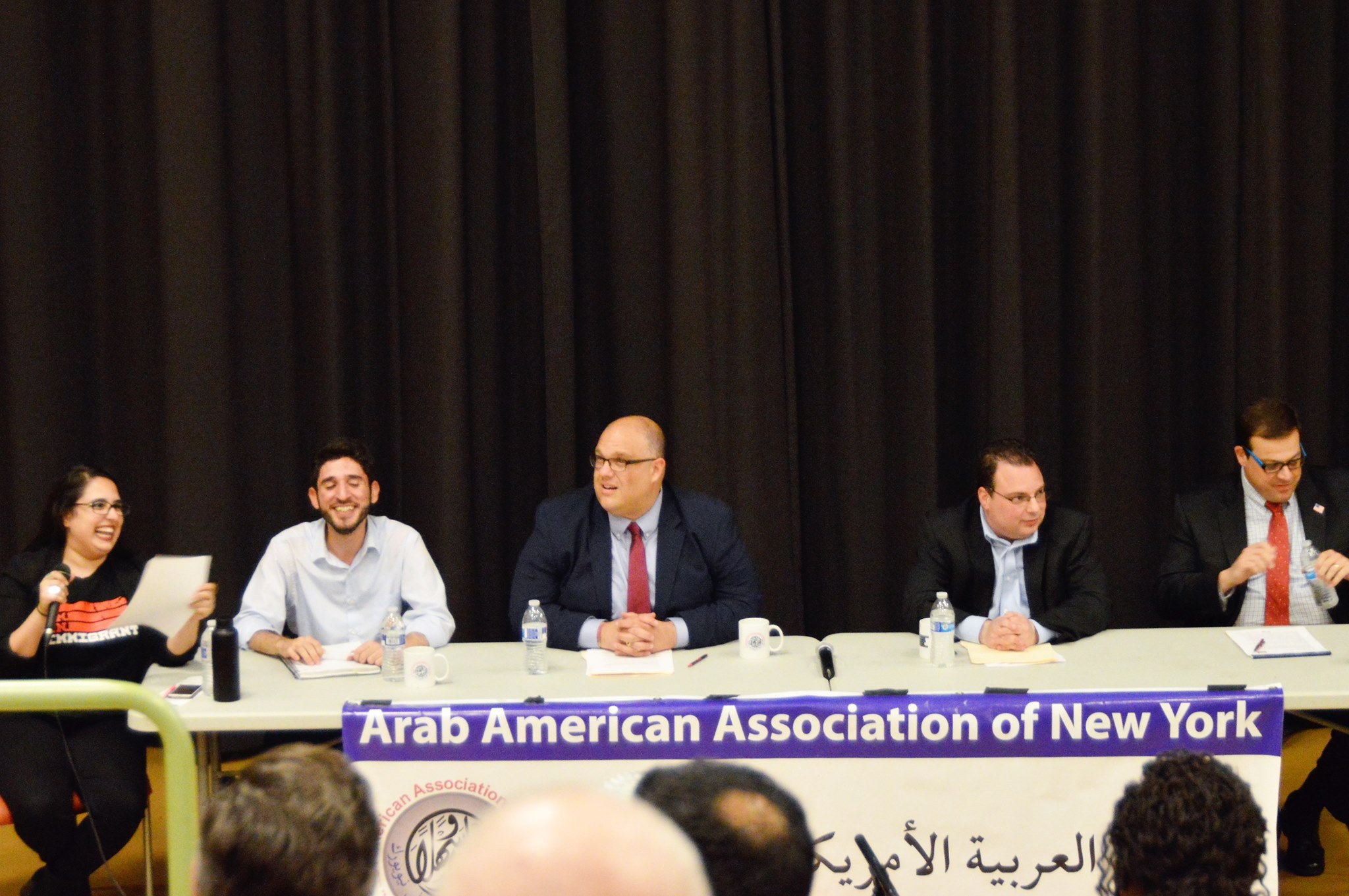Council candidates debate immigration, justice and discrimination issues

Topics like immigration, criminal justice and discrimination were the focal points of a Tuesday, October 24 debate hosted by the Arab American Association of New York in which the three candidates for the 43rd District City Council seat once again duked it out in front of a large crowd which, this time, leaned to the left.
The debate – moderated by the association’s executive director, Rama Issa-Ibrahim, and co-sponsored by Fight Back Bay Ridge and the South Brooklyn Progressive Resistance, two fast-growing grassroots organizations in the district – was held in the auditorium of P.S./I.S. 30, 7002 Fourth Avenue, and also featured a translator.
In their opening statements, Democratic candidate Justin Brannan and Republican candidate John Quaglione touted visions of inclusivity within the neighborhoods they hope to serve.